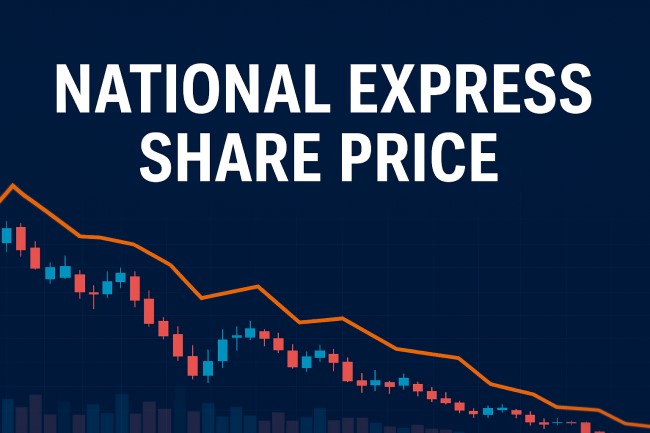National Express Share Price: A Complete Analysis of Its Market Journey

The National Express share price has long been a point of interest for investors and market analysts. Once a strong name in the UK transport industry, National Express has undergone significant changes, including a rebrand to Mobico Group. Over the past few years, its share price has reflected a mix of optimism, challenges, and uncertainty. This article explores the share price trends, the company’s financial performance, factors affecting its market value, and its future outlook, giving readers a detailed understanding of what influences its stock movement.
The History of National Express
Early Success and Expansion
National Express began as a UK-based coach operator, quickly expanding into various transportation segments, including buses, trains, and international services. For decades, the company built a reputation as a reliable and established travel brand, which helped its stock perform steadily on the London Stock Exchange.
Rebranding to Mobico Group
In 2023, the company rebranded as Mobico Group to reflect its diversified global operations beyond just the UK coach market. Despite this change in name, many investors still associate it with the National Express identity. This rebranding also aimed to refresh the company’s image and attract new investment interest, although the share price continued to fluctuate amid financial challenges.
Understanding the National Express Share Price Performance
Long-Term Market Movement
Over the long term, the National Express share price has seen periods of strong growth followed by sharp declines. The COVID-19 pandemic caused a severe drop as travel restrictions crushed passenger numbers. Recovery has been slow and inconsistent, with the share price struggling to regain its pre-pandemic levels.
Recent Share Price Trends
In recent years, the share price has hovered at relatively low levels compared to its historic highs. A combination of heavy debt, operational issues in some business units, and losses from one-off charges have weighed down investor confidence. The company’s efforts to restructure and sell underperforming assets have been closely watched by the market, and even small updates on these moves often trigger sudden changes in the share price.
Key Financial Indicators Influencing the Share Price
Revenue and Profit Performance
Revenue has remained in the billions, showing that the company still has strong demand and operational scale. However, profitability has been inconsistent. Large non-cash charges, such as goodwill impairments and provisions for contract losses, have turned reported profits into significant losses. Investors closely monitor these figures because negative earnings affect the company’s ability to pay dividends or reduce debt.
Debt Levels and Gearing
One of the biggest concerns affecting the National Express share price has been its high debt. The company has carried heavy borrowing for years, partly due to expansion projects and the impact of the pandemic. Analysts often highlight its gearing ratio as a risk factor. Recently, management has focused on selling assets and cutting costs to lower debt levels, a strategy that could gradually restore investor confidence if executed well.
Free Cash Flow and Liquidity
Despite reported losses, National Express has generated positive free cash flow in recent periods. This is a critical indicator for investors because it shows the company’s ability to fund operations and debt repayments without raising extra capital. Strong liquidity and no major debt maturities until 2027 have given the company breathing room, which could support future recovery in the share price.
External Factors Shaping Market Sentiment
Economic Climate
As a transport operator, National Express is highly sensitive to the overall economic climate. Inflation, fuel prices, and wage pressures directly influence its operating costs. A slowdown in economic activity or reduced consumer spending on travel can weaken its revenues, which tends to drag down the share price.
Competition and Regulation
The company faces competition from other public transport providers and changing government policies on transportation and emissions. Regulatory changes, such as new environmental rules, could require costly investments in cleaner fleets. These factors can impact profitability forecasts and, in turn, the share price valuation.
Market Psychology
Investor sentiment plays a major role in daily share price movement. Any news about leadership changes, asset sales, or earnings surprises often causes sharp short-term reactions. Because the stock is trading at relatively low levels, even minor positive or negative news can trigger strong price swings as traders respond quickly.
Recent Strategic Developments
Asset Sales to Reduce Debt
One of the most significant moves has been the sale of the company’s North American school bus division. The proceeds are being used to reduce debt, which is seen as a necessary step to stabilize the balance sheet. This action has been welcomed by investors, who view lower debt as a key condition for long-term recovery.
Cost Reduction and Restructuring
Management has also implemented cost-saving measures, including restructuring underperforming contracts in the UK and reviewing operations in Germany. These steps aim to boost profitability and improve margins. Success in these initiatives could positively influence the share price by showing the company is addressing its core challenges.
Investor Outlook and Analyst Opinions
Mixed Sentiment
Analyst sentiment on the National Express share price remains mixed. Some see it as undervalued, believing that if debt is reduced and profitability improves, the stock could deliver strong gains from its low base. Others remain cautious, concerned about the slow pace of recovery and the risks of further write-downs or operational difficulties.
Price Targets
Most analysts place their 12-month price targets above the current share price, suggesting potential upside. However, they also note that this depends heavily on the company meeting its financial targets and avoiding new setbacks. Until consistent profits return, the stock is likely to remain volatile.
Risks to Consider for Investors
Ongoing Losses
The biggest risk is that continued losses or new one-time charges could further damage confidence. Even if the core business performs well operationally, accounting losses can keep the share price depressed.
Market Volatility
Broader market volatility, interest rate changes, and geopolitical uncertainty can also affect investor appetite for riskier stocks like National Express. This means that even company-specific progress might be overshadowed by wider market trends.
Execution Risk
There is also execution risk: if the company fails to deliver on its cost-cutting or restructuring plans, or if its debt reduction strategy stalls, the share price could fall further despite positive expectations.
Future Outlook
Looking ahead, the National Express share price has potential to recover if management continues to reduce debt, improve efficiency, and restore profitability. Achieving steady earnings growth could help regain market trust and attract long-term investors back to the stock. However, this recovery will likely take time and require consistent positive performance across all its operating divisions.
Conclusion
The National Express share price reflects a complex mix of challenges and opportunities. While the company has faced heavy losses, high debt, and operational struggles, it still maintains strong revenues and a large presence in the transportation market. Its efforts to restructure, cut costs, and reduce debt are crucial steps that could set the stage for a turnaround. For investors, this stock offers potential value but also significant risk. Anyone considering it should watch its debt levels, cash flow, and operational improvements closely before making a decision.



